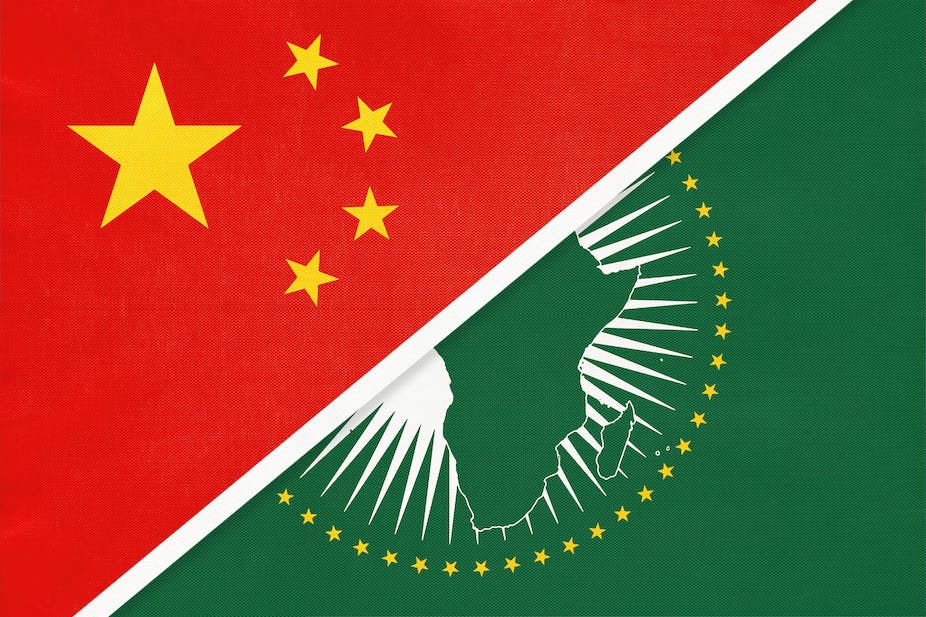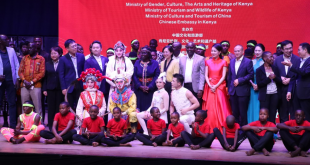Published:August 22,2022

When the Mombasa-Nairobi Standard Gauge Railway (SGR) was launched on May 31, 2017, Grace Wambui, a middle-aged Kenyan trader, could thus transport her goods seamlessly to earn profit.
Constructed by the China Road and Bridge Corporation, the 480-km modern railway line, linking Kenya’s port city of Mombasa to the capital of Nairobi, has been at the heart of the country’s socio-economic transformation. During a recent interview with Xinhua, Philip Mainga, managing director of the Kenya Railways Corporation, underscored China’s contribution to Kenya’s infrastructure modernization, citing the SGR as a telling example. “The SGR is a successful project, a project with a future, and a project that has transformed the country,” said Mainga.
INFRASTRUCTURE BOOM
In recent years, connectivity between China and Africa has expanded at a faster pace and Kenya has benefited from the infrastructure boom under the Belt and Road Initiative. Since the founding of the Forum on China-Africa Cooperation (FOCAC), Chinese companies have helped African countries build and upgrade more than 10,000 km of railways, some 100,000 km of highways, nearly 1,000 bridges and 100 ports, and 66,000 km of power transmission and distribution, according to a white paper titled “China and Africa in the New Era: A Partnership of Equals.” Modernization of critical infrastructures like roads, railways, seaports and airports has been a central feature of China-Africa cooperation, spurring the continent’s economic rejuvenation, said Abena Oduro, a trade economist at the department of economics at the University of Ghana.
Oduro stressed that China-funded infrastructure development will be key to realizing the fruits of the African Continental Free Trade Area (AfCFTA), which was established in 2018 to foster the cross-border movement of goods and services. As inadequate infrastructure remains a major obstacle for Africa to achieve its full economic growth potential, improved infrastructure will facilitate domestic and international trade, reduce the cost of doing business and enhance Africa’s competitiveness both as an exporter and a destination for investors, according to the African Development Bank (AfDB). “China attaches particular importance to infrastructure because it is a critical enabler for productivity and sustainable economic growth; as we say in our region, ‘when the road passes, development follows,'” said Jimmy Yab, president of the China-Africa Francophone Observatory.
POVERTY ALLEVIATION
Despite abundant resources, a large population and a vast market, Africa remains the world’s least developed continent, beset by persistent poverty and hunger. China’s successful fight against poverty has created a pathway to be followed by developing nations seeking to lift a large portion of their population out of poverty within a stipulated time, said Sheriff Ghali Ibrahim, head of the department of political science and international relations at the University of Abuja, Nigeria.
In Burkina Faso, Chinese experts are helping farmers acquire quality seeds, fertilizer and equipment to boost rice production. “Based on the actual needs of the Burkina Faso people, our mission is to develop rice cultivation, increase rice production while expanding the cultivation area and promoting new technologies,” said Hu Yuzhou, head of a Chinese agricultural technical assistance team in Burkina Faso. GaoussouSanou, national coordinator of the Burkina Faso-China agricultural cooperation program, said that rice production had tripled compared to previous years, thanks to assistance from Chinese experts.
Guinea-Bissau and Madagascar are also among African countries that have benefited from Chinese expertise and technology to boost rice production. In Tanzania, the government has leveraged funds from China to develop the Juncao technology for livestock fodder and mushroom production. The Juncao technology, which literally means fungi and grass literally, was invented in the 1980s by Lin Zhanxi, a professor at China’s Fujian Agriculture and Forestry University. “The Juncao technology will increase mushroom production and consumption, which will contribute to food security in the country,” said Tanzanian Minister for Livestock and Fisheries Mashimba Ndaki.
Cavince Adhere, a Kenyan international relations expert, said that China’s success in alleviating rural poverty by leveraging technology-led farming methods inspires developing countries. “Contrary to many countries where development is often associated with investments in cities and other urban centers, China prioritized rural areas in its poverty reduction efforts where agriculture played a major role,” Adhere said.
INCLUSIVE GROWTH, SHARED PROSPERITY
In November last year, the 8th Ministerial Conference of the FOCAC was held in Dakar, Senegal, during which China announced its decision to jointly implement nine programs with African countries, demonstrating its consistent commitment to Africa and the sustained momentum of China-Africa cooperation. At Thursday’s coordinators’ meeting on the implementation of the outcomes of the 8th ministerial conference held virtually, Chinese State Councilor and Foreign Minister Wang Yi said that China and Africa had jointly implemented the outcomes with good progress and brought tangible benefits to the African people.
Peter Kagwanja, chief executive of Kenya’s Africa Policy Institute, a pan-African think tank, said that FOCAC demonstrates the strong partnership between Africa and China as well as China’s sincerity and actions in helping with Africa’s development. China has now emerged as Africa’s biggest trading partner, one of the continent’s biggest lenders, and one of its biggest foreign investors. In the face of COVID-19, China and Africa have enhanced solidarity and strengthened friendship. China is strategically aligned with the continent’s quest to achieve the goals of Africa’s Agenda 2063 and the UN Agenda 2030, said Kagwanja. The year 2022 marks the beginning of the implementation of key outcomes of the 8th FOCAC ministerial conference, which is expected to reinvigorate the economy in Africa.
Donald Rushambwa, a researcher at Harare-based China-Africa Economic and Culture Exchange Research Center, said that Beijing has defied skeptics to become a sincere partner and enabler of the continent’s economic renewal.
Xinhuap
 Africa -China Review Africa -China Cooperation and Transformation
Africa -China Review Africa -China Cooperation and Transformation
